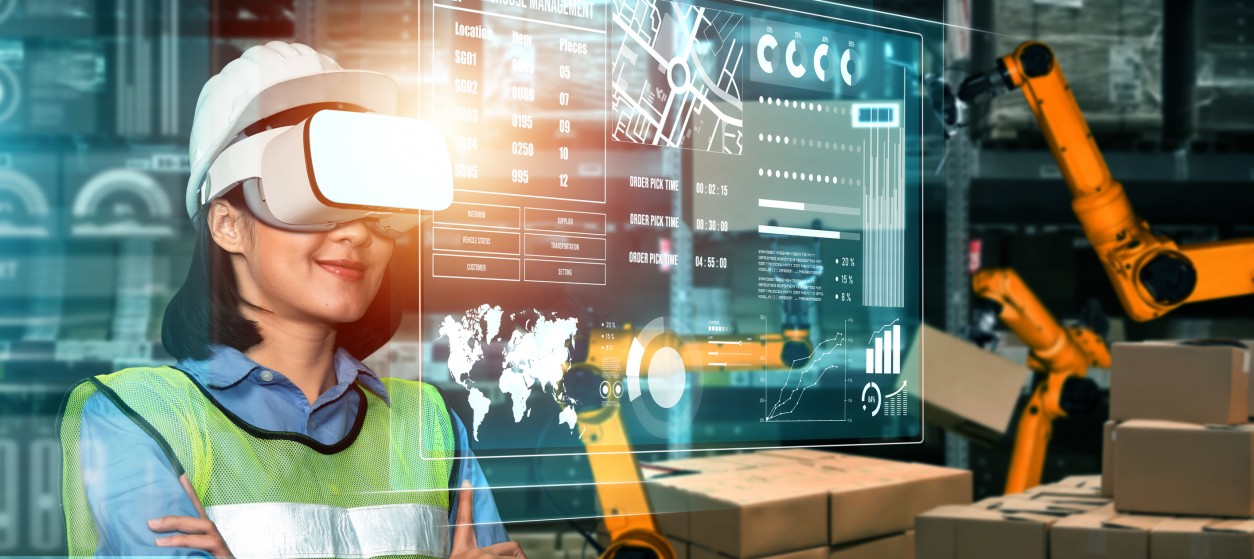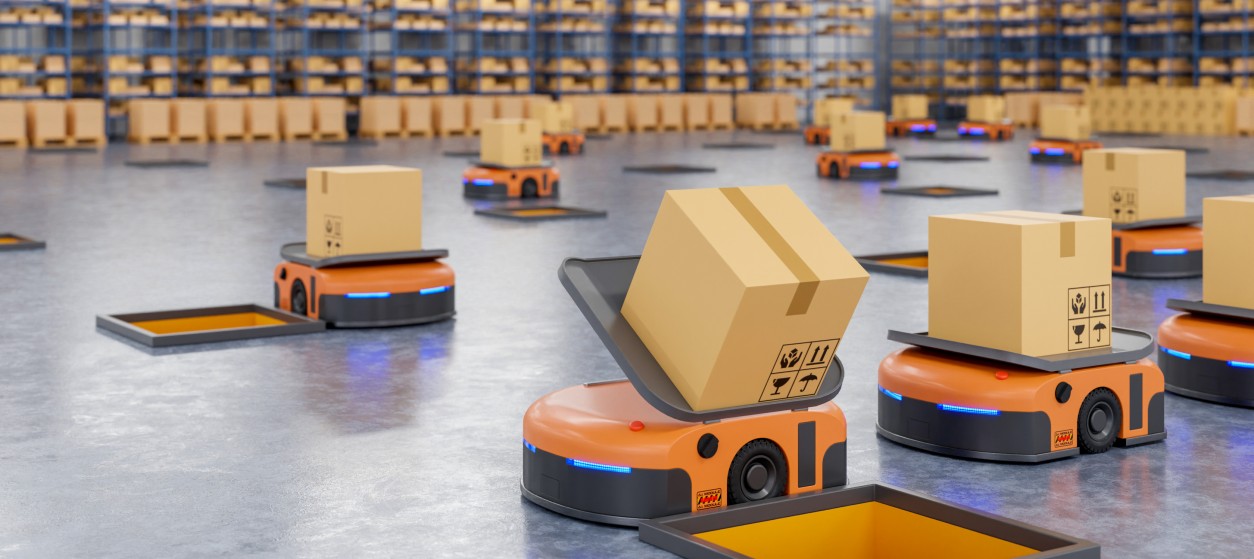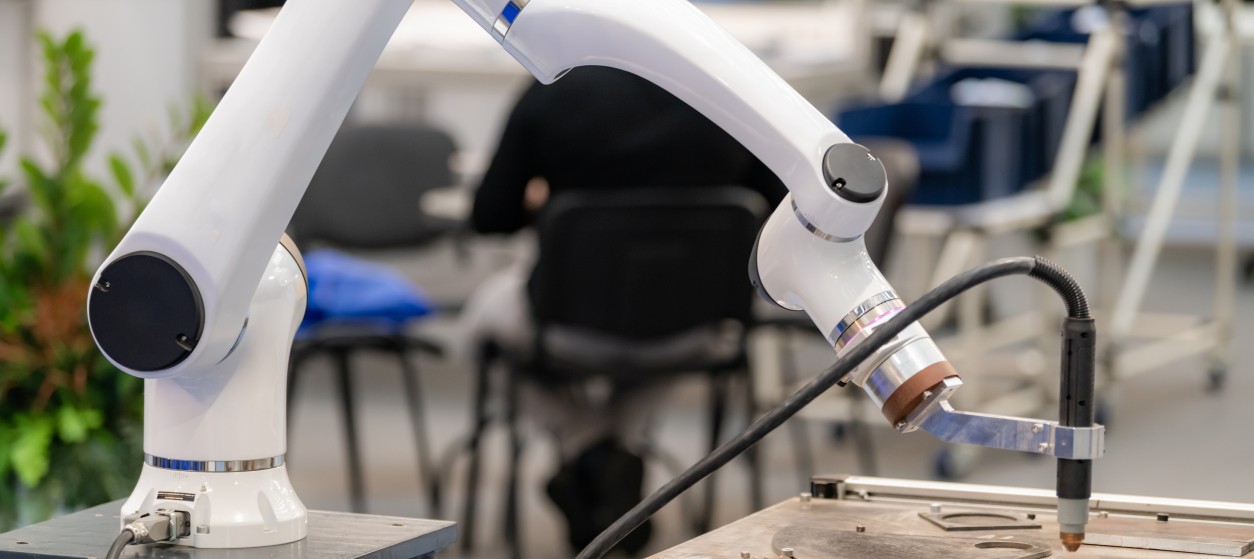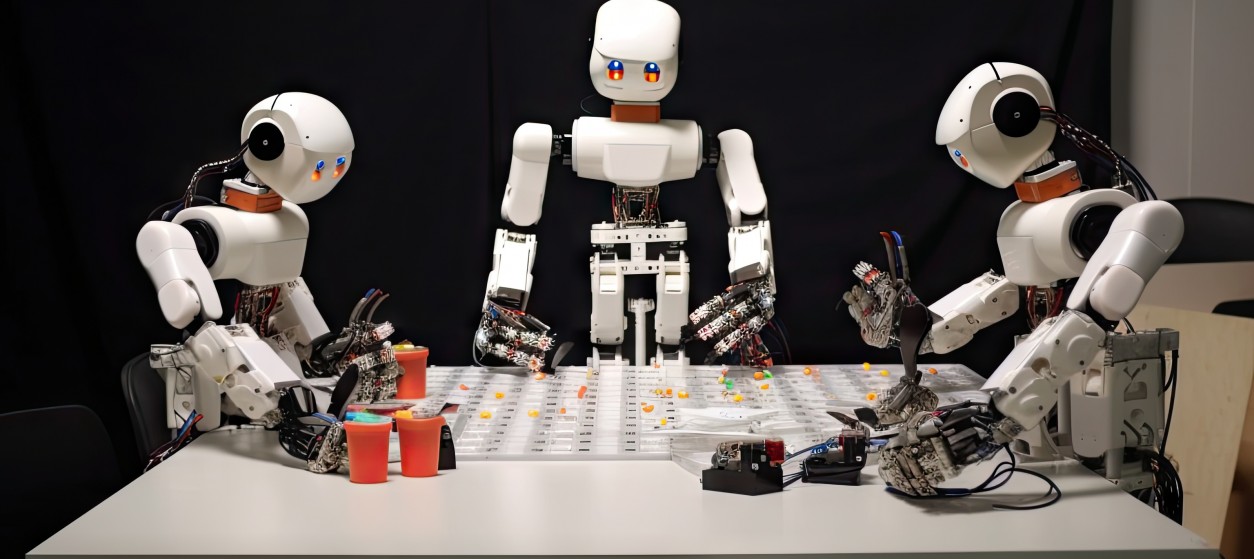The Fourth Industrial Revolution, also known as Industry 4.0, is characterized by the fusion of the digital, physical, and biological worlds. It builds upon developments of the third Industrial Revolution, which focused primarily on the automation of production and the rise of digital technology. Industry 4.0 is currently marked by breakthroughs in various fields, including artificial intelligence, robotics, quantum computing, and biotechnology.
As we enter the Industry 4.0 era, the rapid advancements in technology are transforming the way we live, work, and interact with one another, while at the same time delivering unprecedented improvements in business productivity. Specifically, the integration of Big Data, Artificial Intelligence, robotics, the Internet of Things, and other digital innovations are shaping the future of work. The latter refers to the on-going shift in work practices and the ways they impact businesses and their workers. It is widely acknowledged that the future of work demands a new set of skills that will enable workers and businesses to thrive in this new era. The development of these skills is directly associated with on-going changes and the evolution of the job market. Organizations like the World Economic Forum (WEF) and the World Manufacturing Forum (WMF) have predicted that in the coming decade millions of jobs will be displaced by a shift in the division of labor between humans and machines. As part of this shift, millions of new roles and jobs will also emerge, yet these new jobs will require a new set of skills. This is the reason why businesses and workers must understand the essential skills that are required to help them succeed in the fourth industrial revolutions. At the same time, they must also prepare to adapt to these changes.
Technology Literacy for Industry 4.0
Industry 4.0 is primarily a technological revolution. Therefore, technical, and technological skills must be prioritized by industrial workers and organizations. The technological skills required for jobs of the Industry 4.0 can be broadly classified into two categories, including technology management skills and core technology skills. Technology management skills include the ability to manage and oversee the implementation and use of various technologies in an organization. Most managers are expected to possess such skills to be able to leverage emerging technologies to substantially improve their business results.
On the other hand, core technology skills involve expertise in specific technologies, such as artificial intelligence, robotics, the Internet of Things, and other digital innovations. For example, to succeed in Industry 4.0, professionals must be well-versed in some of the following technological skills:
- Machine learning, is key for identifying patterns and rules within large volumes of historical datasets for training machines, robots, and cyber-physical systems to operate autonomously.
- Augmented reality (AR), combines virtual cyber-representations with visualizations of the real world in order to provide end-users with unique insights into different configurations of real environments.
- Virtual reality (VR), provides realistic simulations that resemble the real world, to facilitate processes like workers’ training.
- Robotics and Automation Devices, open new horizons in industrial automation based on combinations of machine learning and IoT technologies for production process optimizations.
- Additive Manufacturing, which entails the use of 3D printers towards producing parts or entire products based on their digital models. 3D printing can greatly accelerate manufacturing processes, which helps to address the agility and speed challenges of the fourth industrial revolution.
- Blockchain technology, is key to creating smart, secure, decentralized networks that manage digital assets in a trustworthy manner.
Other Essential Skills
Beyond technical and technological skills, individuals must also develop a diverse set of complementary skills such as strong interpersonal skills and soft skills. Specifically, some of the non-technological skills that are already in high demand in the Fourth Industrial Revolution are:
- Complex Problem Solving: The ability to solve complex, multidisciplinary problems is crucial in the age of Industry 4.0. As technology continues to advance, professionals will need to adapt to new systems, processes, and challenges, requiring creative and innovative solutions.
- Critical Thinking: This involves the ability to analyze information, evaluate evidence, and make informed decisions. In the Industry 4.0 era, professionals are expected to be able to assess the credibility of vast amounts of data and to use this information to make strategic decisions.
- Emotional Intelligence (EQ): EQ refers to the ability to understand and manage one’s own emotions and those of others. As automation takes over routine tasks, the importance of human-to-human interaction increases. Therefore, EQ is gradually becoming a vital skill in the workplace.
- Creativity: This is the ability to generate new ideas, products, or solutions. As industries continue to evolve, professionals with creative thinking skills will be in high demand to develop innovative strategies and solutions.
- Technological Literacy: This is about the ability to understand and utilize digital tools and technologies effectively. With the rise of automation and digitalization, professionals must be comfortable with using technology and be able to learn new systems quickly.
- Adaptability and Flexibility: Industry 4.0 is empowered by a rapid pace of change. The latter requires individuals to be adaptable and flexible. Specifically, professionals must be open to learning new skills, embracing change, and adjusting their strategies to stay relevant in the job market.
- Collaboration and Teamwork: As technology continues to break down geographical barriers, the ability to work effectively in diverse teams will become increasingly important. Professionals must be able to develop strong communication and collaboration skills to succeed in the globalized workplace.
Overall, individuals and organizations must take proactive steps to prepare for the Industry 4.0 challenges and opportunities. This includes investing in continuous learning, embracing new technologies, and fostering a culture of innovation and collaboration. By developing the essential skills required for the Fourth Industrial Revolution, individuals can ensure their long-term success in the rapidly evolving job market, while organizations can remain competitive in the face of unprecedented change. So, are you ready to embrace the future of work and thrive in the Fourth Industrial Revolution?











I blog quite often and I truly thank you for your information.
This great article has truly peaked my interest.
I’m going to book mark your site and keep checking for new details about once a week.
I subscribed to your Feed as well.
Feel free to visit my blog – bitcoin bank breaker
I am genuinely glad to read this blog posts which carries tons of helpful information, thanks for providing such data.
Here is my blog post: Bitcoin Bank Breaker
Hello there! Do you know if they make any plugins to help with Search Engine
Optimization? I’m trying to get my website to rank for some targeted keywords but I’m not seeing very good
results. If you know of any please share. Many thanks!
I saw similar blog here: Warm blankets
I conceive this internet site holds very great written content material content.
https://www.smortergiremal.com/
We are a bunch of volunteers and opening a new scheme in our community.
Your site offered us with helpful info to work on. You’ve done
a formidable task and our entire neighborhood might be thankful to you.
Visit my page – Bitcoin Bank Breaker